- Home
- slideshows
- miscellaneous
- Here are all the companies Airbnb has acquired to help it grow into a $31 billion business
Here are all the companies Airbnb has acquired to help it grow into a $31 billion business
Accoleo (June 2011)

Crashpadder (March 2012)
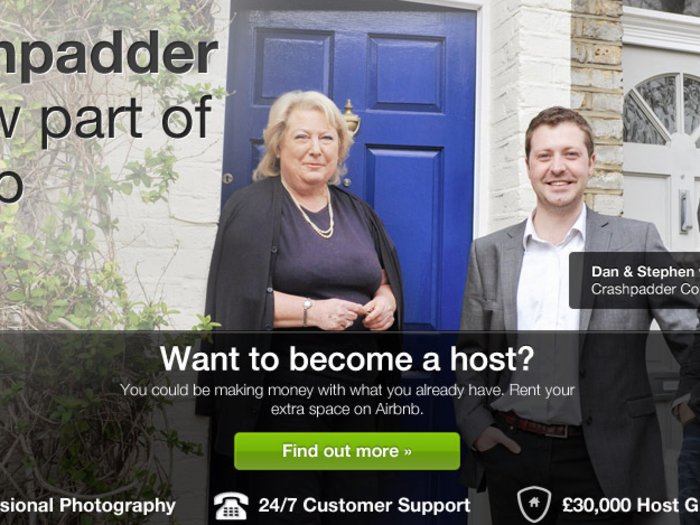
What it was: Dan Hill and Stephen Rapoport had grown Crashpadder, essentially a London-based version of Airbnb, to 7,000 hosts across 100 countries by the time Airbnb bought it, according to the company's website.
Why Airbnb bought it: Continuing its international push, Airbnb purchased Crashpadder to lock down the UK market — and just in time for the 2012 Olympics.
What happened to the company: Crashpadder automatically migrated its hosts' accounts and listings to Airbnb as part of the transition.
How much Airbnb paid: Undisclosed.
DailyBooth (July 2012)
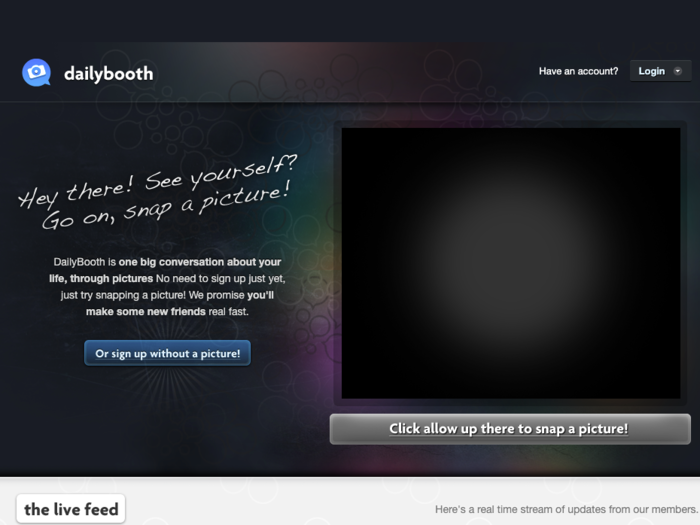
What it was: DailyBooth was a social media app built by Jon Wheatley and Ryan Amos that allowed users to photo-blog their "life in pictures."
Why Airbnb bought it: With smartphones taking off and more of Airbnb's traffic coming from mobile, the company wanted to bring on design and engineering talent to improve its mobile user experience, which DailyBooth had in spades under CEO Brian Pokorny.
What happened to the company: Pokorny and the DailyBooth team joined Airbnb, while the site shut down later that year.
How much Airbnb paid: Undisclosed.
NabeWise (July 2012)
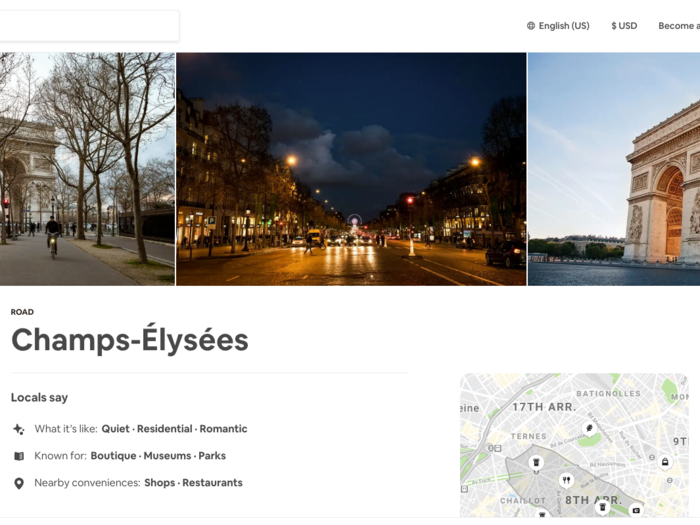
What it was: NabeWise was a guide created by Ann Montgomery, Ben Hughes, and Andy Kramolisch to help users find out what a neighborhood was "truly like."
Why Airbnb bought it: Airbnb was quiet about the acquisition at the time, but later that year it unveiled a new product called Neighborhoods, a travel guide informed by interviews with locals as well as publicly available data.
What happened to the company: NabeWise shut down and its team was put to work on helping develop the Neighborhoods product.
How much Airbnb paid: Undisclosed.
Fondu (October 2012)
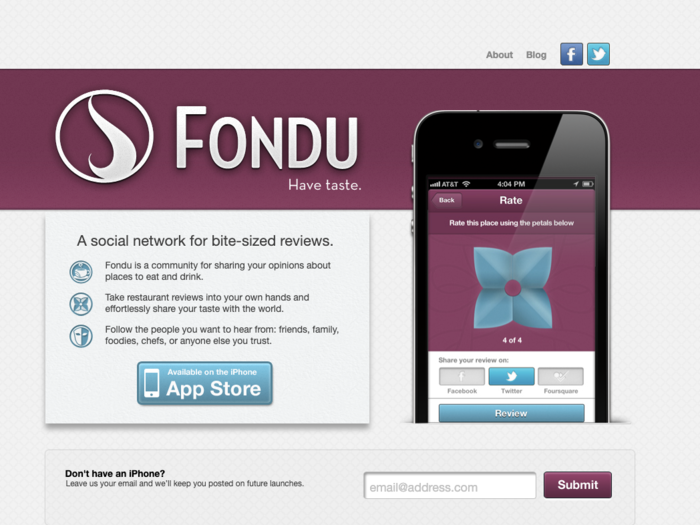
What it was: Fondu, started by Gauri Manglik, Orion Burt, and Mike Lewis, was a Yelp-like website and mobile app that offered "bite-sized local reviews."
Why Airbnb bought it: Still in its "acqui-hire" phase, Airbnb cited a natural fit with Fondu's team because of its product's roots in "layering discovery and community for trusted recommendations."
What happened to the company: Fondu's team joined Airbnb and eventually stopped posting reviews to the site.
How much Airbnb paid: Undisclosed.
Localmind (December 2012)
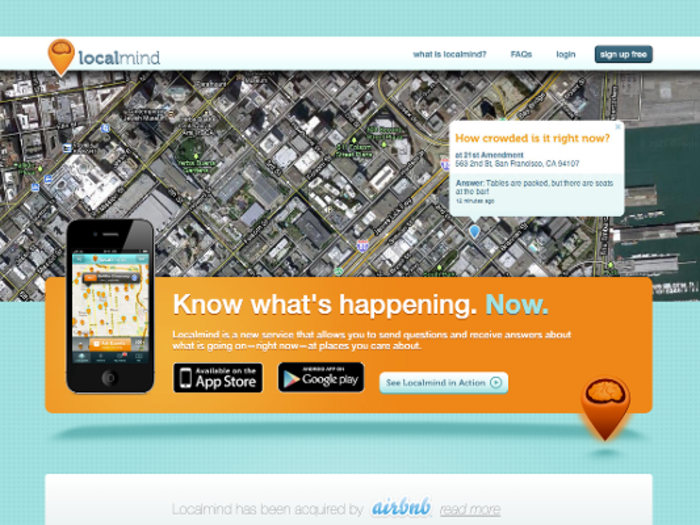
What it was: Localmind, founded by Lenny Rachitsky and Beau Haugh, was a question-and-answer tool that allowed people to ask about events happening in their neighborhood.
Why Airbnb bought it: Following its acquisition of NabeWise a few months earlier, Airbnb's purchase of Localmind continued its push into local advertising and efforts to appeal to local businesses.
What happened to the company: Localmind's team joined Airbnb and its own platform was shut down.
How much Airbnb paid: Undisclosed.
Pencil Labs (December 2014)
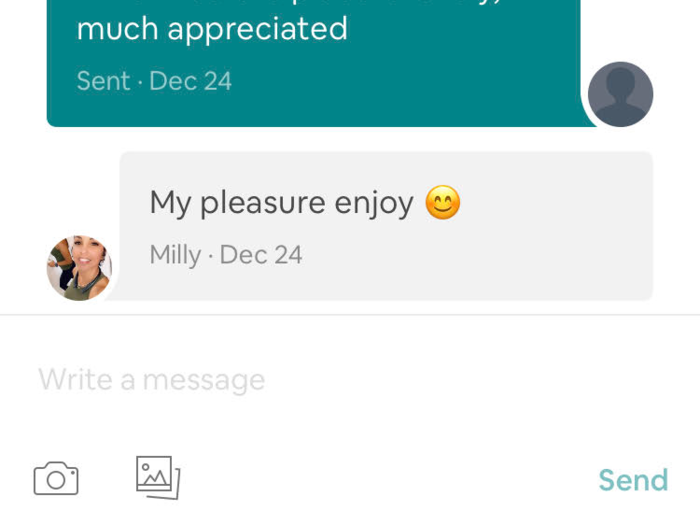
What it was: Pencil Labs, founded in Cambridge, Massachusetts, by Carla Pellicano and Han Shu, created a scheduling app called Wyth that helped users coordinate meet-ups by syncing up their texts, emails, and calendars.
Why Airbnb bought it: Airbnb wanted to continue making it easier for hosts and guests to communicate about bookings, and it thought Pencil Lab's founders could lend a hand given their experience building messaging and scheduling tools.
What happened to the company: Pencil Lab's small team hopped on board with Airbnb and stopped developing the app.
How much Airbnb paid: Undisclosed.
Vamo (September 2015)
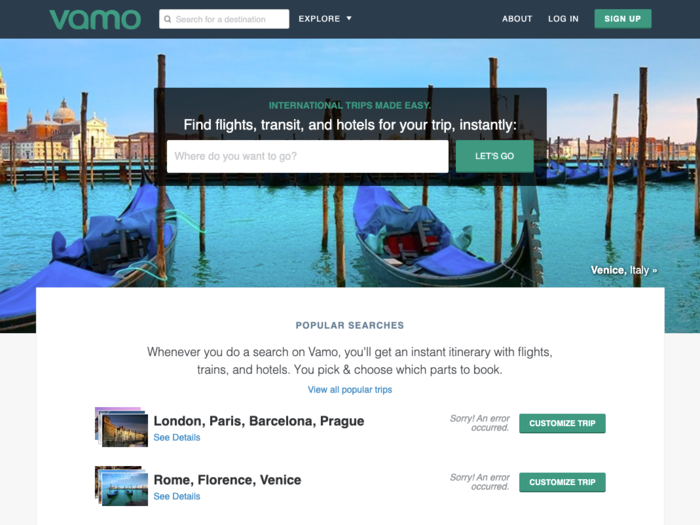
What it was: Vamo, founded by former Facebook executive Ari Steinberg, was a travel website that helped people plan complex or multi-city vacations.
Why Airbnb bought it: Airbnb wanted to continue its push toward becoming a one-stop shop for travel, which meant helping customers book every aspect of their trips, not just accommodations. CEO Brian Chesky even told Vanity Fair he stepped away from day-to-day operations in late 2014 to work on this exact feature, which was unveiled two years later as Airbnb Trips.
What happened to the company: Vamo's team joined Airbnb to work on the guest experience side of its business, while Vamo's own service shut down.
How much Airbnb paid: Undisclosed.
Lapka (September 2015)

What it was: Lapka was an obscure, boutique Russian design agency founded by Vadik Marmeladov that sought to redesign medical and other sensor-based devices "as affordable, accessible and innovative accessories."
Why Airbnb bought it: Airbnb was fairly cryptic about the purchase, with cofounder and chief product officer Joe Gebbia telling Wired he was "inspired by [Lapka's] impressive design sensibilities." After interviewing Marmeladov, Fast Company speculated that "whatever product Lapka is building for Airbnb most likely won't be about the product at all," but rather about applying the agency's unique industrial design philosophy at large scales.
What happened to the company: Lapka's website is still live, but it's not clear exactly how its work has integrated into Airbnb.
How much Airbnb paid: Undisclosed.
Trip4real (September 2016)
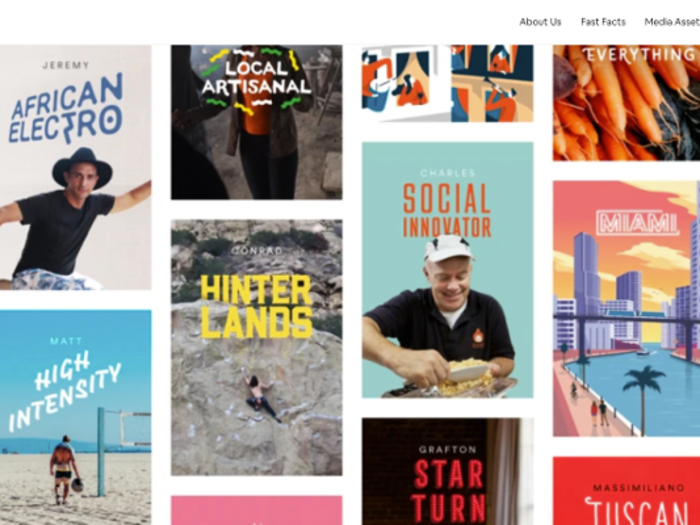
What it was: founded by Gloria Molins, Barcelona-based Trip4real was an online platform that connected travelers with local activities and experiences they could book ahead of time.
Why Airbnb bought it: Following its acquisition of Vamo a year prior, Airbnb scooped up another company in the local activities booking space, Trip4real. The two acquistions helped Chesky advance his secret intiative, called "Snow White," which was eventually launched in 2016 as Airbnb Trips.
What happened to the company: Molins and the Trip4real team joined Airbnb and eventually the site was shuttered.
How much Airbnb paid: Undisclosed.
Luxury Retreats (February 2017)
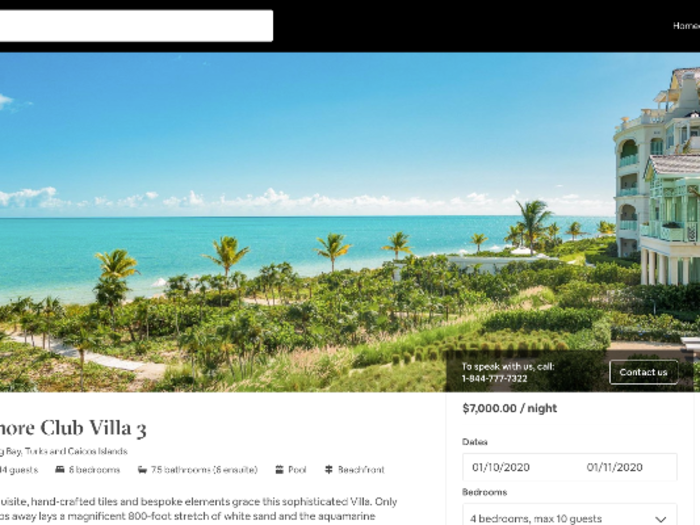
What it was: Montreal-based Luxury Retreats, founded by Joe Poulin, allows travelers to book extravagant vacation rentals in exotic destinations.
Why Airbnb bought it: Buying Luxury Retreats gave Airbnb access to its team's experience providing high-end booking and concierge services and informed the launch of Airbnb Luxe two years later, helping it appeal to a more affluent audience.
What happened to the company: Luxury Retreats continues to run as an independent site, though its listings are also being incorporated into Airbnb's platform. Poulin became head of Airbnb's luxury homes and reports directly to Chesky.
How much Airbnb paid: Under $300 million, according to Bloomberg.
Tilt (February 2017)
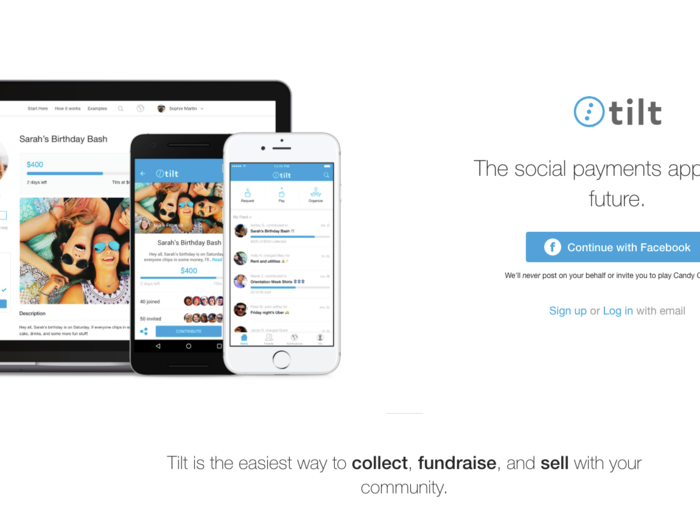
What it was: Tilt, founded by James Beshara, Karolyn Baxter, and Khaled Hussein, was an online payments and crowdfunding platform that Beshara once told Business Insider was "the digital version of putting money in a hat."
Why Airbnb bought it: Airbnb was apparently interested not in Tilt's business, but instead in the company's talent and technology around digital payments.
What happened to the company: Tilt was eventually shut down, while Airbnb retained most of its team.
How much Airbnb paid: Sources told The Information the deal could be between $10 million and $20 million, while TechCrunch's sources said it could be higher than $50 million. Anything in that range would have been significantly lower than the $400 million valuation Tilt peaked at in 2015.
ChangeCoin (April 2017)
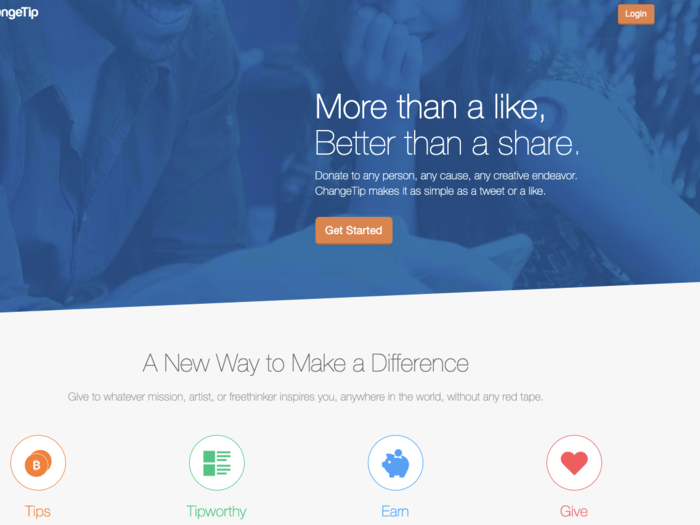
What it was: ChangeCoin, founded by Nick Sullivan, enabled users to tip people with a blockchain-based digital currency on social networks like Twitter and Reddit through a service called ChangeTip.
Why Airbnb bought it: Airbnb CTO Nathan Blecharczyk had recently hinted at the company's interest in exploring how blockchain might be used to verify people's online identity and establish trust across its platform.
What happened to the company: ChangeCoin was shut down, and while the acquisition gave Airbnb a team of engineers with blockchain experience, it didn't include any of ChangeCoin's intellectual property or assets, so it's not clear how Airbnb has folded in the company or its team.
How much Airbnb paid: Undisclosed.
Deco Software (May 2017)
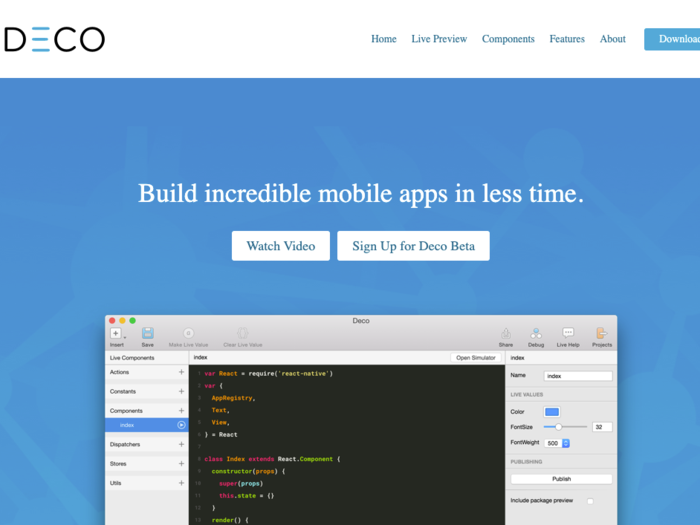
What it was: With Deco, founders Devin Abbott, David Chen, Spencer Liolios, and Gavin Owens created a tool to speed up mobile app development and "bridge the gap between designers and engineers."
Why Airbnb bought it: Airbnb still needed more talent to help develop its own platform, and since it had already been working with Deco, the company felt confident bringing on its team.
What happened to the company: Deco's founders joined Airbnb, discontinued support for their product, and let the development environment they had built live on as an open-source tool.
How much Airbnb paid: Undisclosed.
Trooly (June 2017)
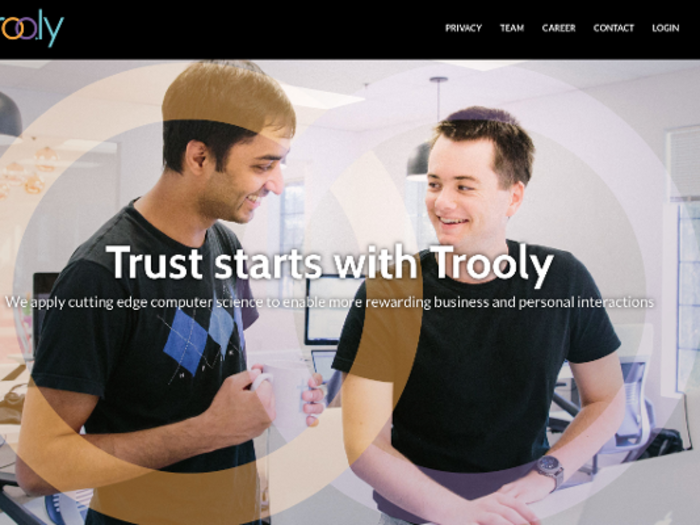
What it was: Trooly, the product of Savi Baveja, Nilesh Dalvi, and Anish Das Sarma, aimed to make background checks faster and more accurate by using machine learning to analyze information on individuals sourced anywhere from the dark web to public records.
Why Airbnb bought it: As Airbnb's scale grew, so did issues with fraudulent and bad actors. Trooly, which it had been working with since 2015, offered both talent and technology that Airbnb could put to work on solving its trust and safety problems.
What happened to the company: Trooly shut down its independent operations, but its cofounders joined Airbnb and its underlying technology has remained an integral part of the platform's identify verification efforts.
How much Airbnb paid: Undisclosed.
Accomable (November 2017)
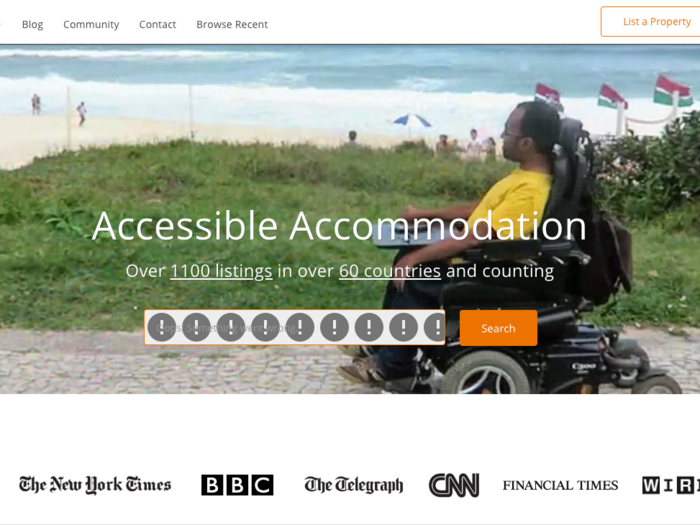
What it was: Srin Madipalli and Martyn Sibley, two friends with spinal muscular atrophy, founded Accomable to make it easier for travelers with disabilities to find accessible places to stay.
Why Airbnb bought it: As early as 2014, Airbnb had faced criticism for not ensuring its US hosts complied with the Americans with Disabilities Act, and a study in May 2017 found that hosts were less likely to approve requests from travelers with disabilities. Not long after, Airbnb gave its apparent response by buying up Accomable, gaining access to accessible listings across 60 countries. The company also rolled out a checklist allowing hosts to provide guests with better information about the accessibility of their properties.
What happened to the company: Accomable's team joined Airbnb, the company was wound down, and its listings got folded into Airbnb's platform.
How much Airbnb paid: Undisclosed.
AdBasis (November 2017)
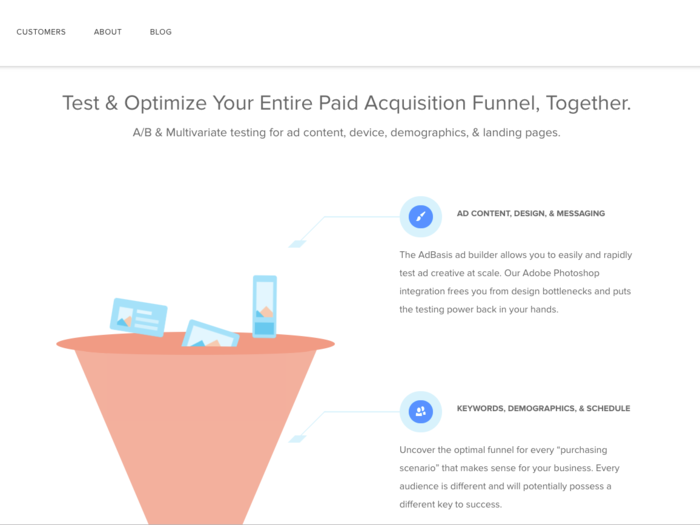
What it was: With AdBasis, Jason Puckett and Joe DiVita built an ad testing and optimization platform that aimed to "bring a scientific process and approach to digital advertising creative."
Why Airbnb bought it: Airbnb didn't say why it bought AdBasis, but having more sophisticated insights about its advertising campaigns or testing tools to identify high-performing listings could certainly have seemed enticing to the company.
What happened to the company: AdBasis simply posted a note to its website confirming the acquisition and saying that, "as part of Airbnb, our team will continue to pave the way in digital creative testing & optimization technology."
How much Airbnb paid: Undisclosed.
Luckey (December 2018)
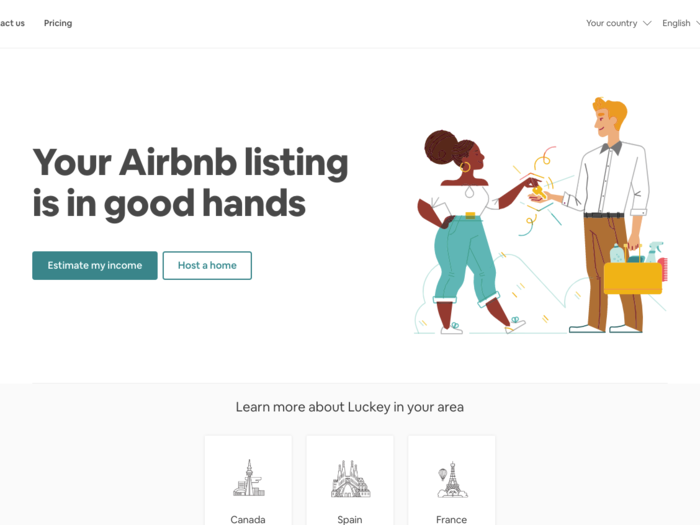
What it was: Luckey is a property management software for short-term rentals based in Paris and started by Aurélien Malfait, David Barbe, and Félix Malfait.
Why Airbnb bought it: Since its inception, Airbnb had acted mostly as a matchmaker for property owners and travelers, leaving the property management side of things up to hosts or property management companies. By acquiring Luckey, rather than partnering with it, Airbnb seemed to signal it wanted to take that aspect of travel in-house as well. The company had also been battling with local regulators in Paris — one of its most lucrative markets — and standardizing the hosting experience might also have been a way to minimize the risk of guests' stays going awry.
What happened to the company: Luckey's team joined Airbnb but remained an independent business unit and has continued operating its service, which was rebranded as "Luckey by Airbnb."
How much Airbnb paid: Undisclosed.
Gaest (January 2019)
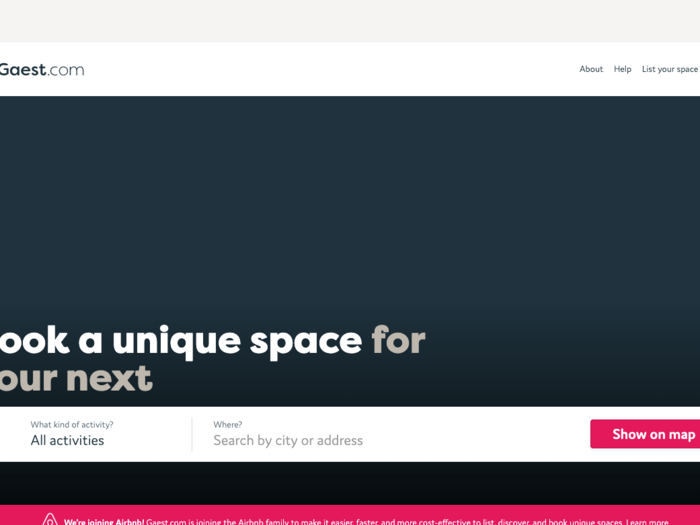
What it was: Gaest was a Danish startup that let people rent out meeting spaces for short periods of time, founded by Anders Boelskifte Mogensen, Chris Kjår Sørensen, Christian Schwarz Lausten, and Jonas Grau Sigtenbjerggaard.
Why Airbnb bought it: Airbnb acquired Gaest so it could extend its short-term rental model to business customers. It might have been hoping to compete with companies like WeWork, which had at the time just been valued at $47 billion following an investment from SoftBank.
What happened to the company: Gaest's founders joined Airbnb and continued to run the site while reporting to Airbnb's Homes business unit, but eventually shut down the platform in June.
How much Airbnb paid: Undisclosed.
HotelTonight (March 2019)
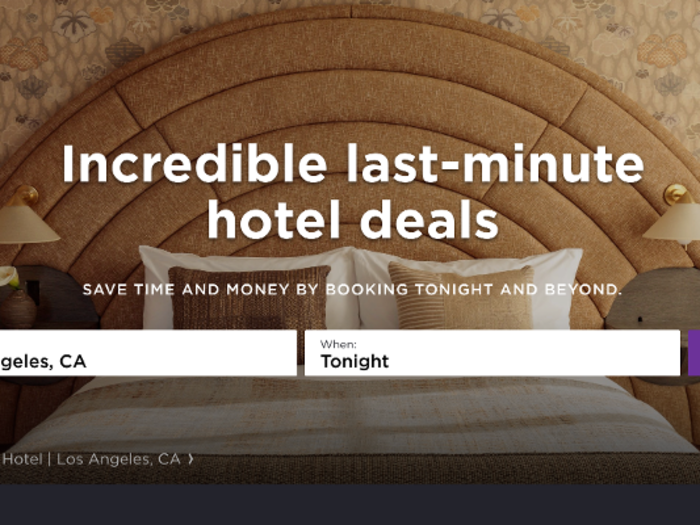
What it was: HotelTonight, founded by Christopher Bailey, Jared Simon, Samuel Shank, lets users find same-day deals on hotels near them.
Why Airbnb bought it: Buying HotelTonight helped Airbnb grow its portfolio of listings and bring in new consumers. Also, adding hotels — long seen as a rival — gave Airbnb the opportunity to court travelers wary of staying in a stranger's home and put it further on track to become the one-stop destination for travel.
What happened to the company: HotelTonight continues to operate as its own site, while co-founder and CEO Samuel Shank went on to lead Airbnb's boutique hotels category.
How much Airbnb paid: Undisclosed.
Urbandoor (August 2019)
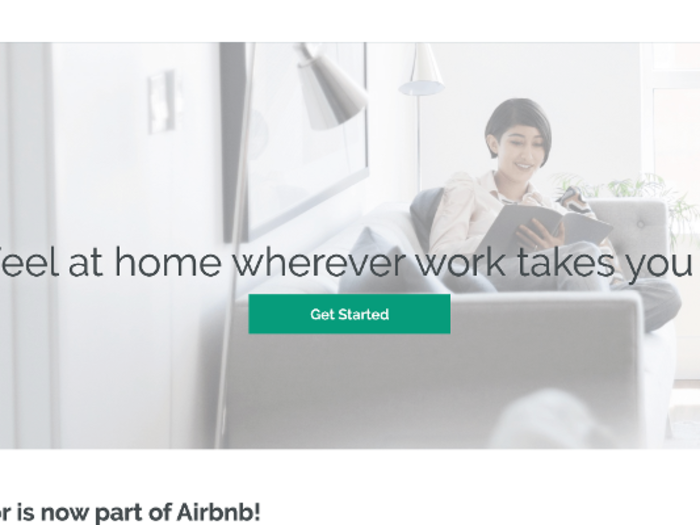
What it was: Urbandoor, founded by Erik Eccles, Benjamin Renaud, and Zack Chandler, was a marketplace that connected business travelers with furnished apartments for extended stays and relocations.
Why Airbnb bought it: Airbnb said the number of work trips taken on its platform tripled in 2016, climbing to 15% of total bookings. By acquiring Urbandoor, Airbnb added to its supply of business-friendly listings. But it also gained Urbandoor's relationships with multifamily property owners — a group Airbnb had struggled to persuade to allow short-term rentals.
What happened to the company: Urbandoor's team joined Airbnb and its listings were added into Airbnb's platform, though Urbandoor itself is still up and running as well.
How much Airbnb paid: Undisclosed.
Popular Right Now
Popular Keywords
Advertisement